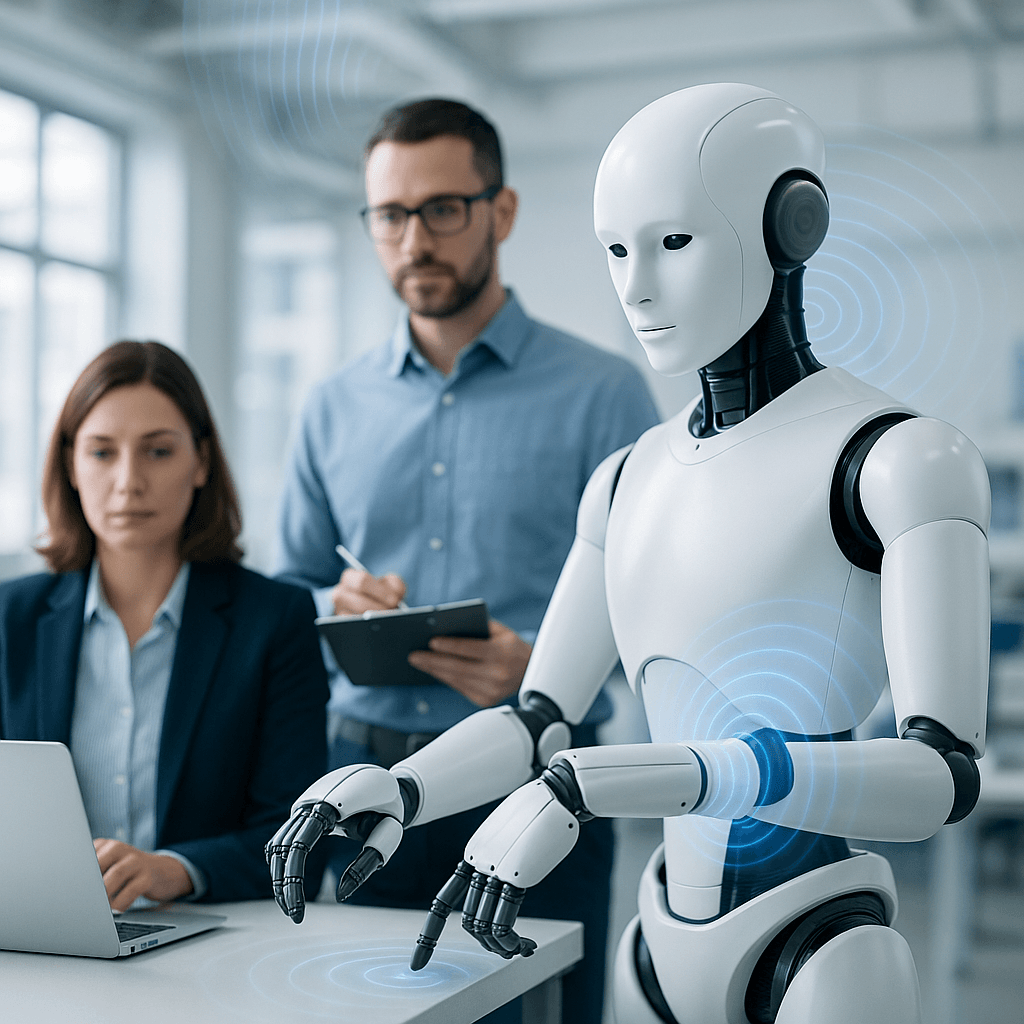As robots move into human workspaces, a Norwegian startup just raised $6 million to solve one of robotics' biggest challenges: keeping people safe. Sonair's ultrasonic sensors promise a cheaper, more comprehensive alternative to LIDAR for robot collision detection, catching the attention of Scale Capital and state-backed Investinor as humanoid robots edge closer to mainstream adoption.
Sonair just secured $6 million to tackle what might be robotics' most pressing problem: how to keep humans safe when robots enter our spaces. The Oslo-based startup's timing couldn't be better, as humanoid robots inch closer to real-world deployment and safety concerns mount across the industry.
The company's ADAR (acoustic detection and ranging) sensors work like biological sonar, sending out ultrasound waves and analyzing how they echo back to create detailed 3D maps of robot surroundings. It's a fundamentally different approach from the LIDAR sensors that dominate robotics today.
"LIDAR is like swiping a laser pointer," CEO and co-founder Knut Sandven told TechCrunch. "But if you shout out in a room, you will fill the room with sound. We will fill the room with sound."
That room-filling approach captures comprehensive data that narrow laser beams miss, addressing what Sandven calls critical gaps in robot perception. The technology launched earlier this year and has already attracted multiple robotics companies planning to integrate Sonair's sensors into their next robot models.
The funding round, led by Scale Capital with participation from Norway's state-backed Investinor and ProVenture, reflects growing investor awareness of robotics safety challenges. Sandven says robotics-focused investors immediately grasped the problem Sonair aims to solve.
The safety conversation mirrors early autonomous vehicle development, where collision detection became paramount as self-driving cars prepared for public roads. Now, as humanoid robots prepare for homes and workplaces, similar safety protocols are emerging as non-negotiable requirements.
Fady Saad from robotics-focused Cybernetix Ventures recently highlighted this concern, calling safety issues the "dirty secret of humanoids at homes." Speaking to TechCrunch in August, he warned: "If this thing falls on pets or kids, it will hurt them, right? This is just one aspect of a big hurdle that no one is paying attention to."
Sonair's sensors are already finding applications beyond robotics. Industrial safety companies are using the technology to detect when workers enter hazardous machinery zones, automatically shutting down equipment before accidents occur. The sensors output data in standard industry formats, making them compatible with existing robotic hardware and software systems.












